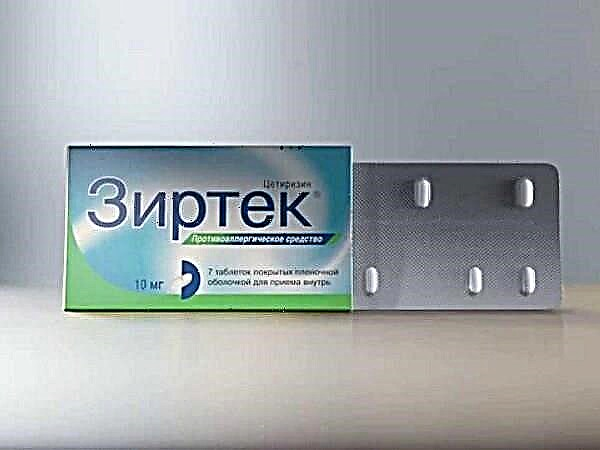
It is very important for women who are expecting a baby to take care of their own health and try to avoid various diseases that can occur in the oral cavity. The most preferable option if the expectant mother, while planning a pregnancy, turns to the dentist and puts her gums and teeth in order. This will help get rid of a chronic infection that can harm the fetus.
But even in this case, the occurrence of stomatitis, caries and other diseases is not excluded, because the body of a pregnant woman undergoes strong changes and functions with increased stress. Therefore, sometimes you have to resort to special medications that affect the condition of the oral cavity. Among them, Metrogyl Denta is in high demand, but its use during childbearing has some limitations.
Features of the drug
Metrogyl Denta is produced in the form of a gel and is used in dentistry. It is a whitish soft mass, which is sold in tubes of 5, 10 and 20 g. The effect of the drug is provided by a combination of two active substances. One of them is metronidazole (its dosage in 1 g of the drug is 10 mg), and the second is chlorhexidine bigluconate (its amount in each gram of gel is 0.5 mg). Among the auxiliary ingredients of the drug are propylene glycol, levomenthol, sodium saccharinate and other compounds.
No prescription is required to purchase Metrogyl Denta. The average cost of one 20-gram package of a medicine is 220-240 rubles. The shelf life of the gel is 3 years from the date of issue. Storage of the drug at home is recommended at room temperature.

Operating principle
The gel has antimicrobial action, and it is provided by both active components. The metronidazole present in the drug can destroy a large list of microorganisms that can infect the oral cavity. Thanks to the addition of chlorhexidine, Metrogyl Denta is characterized by antiseptic properties. The medicine is effective against Neisseria, fusobacteria, bacteroids and other pathogens. Its action is mainly local, and absorption into the blood occurs in scanty amounts.
Is it allowed for pregnant women?
In the annotation to "Metrogyl Denta" it is indicated that there has not been a sufficient number of studies on the effect of such a drug on the fetus, therefore its use while the child is waiting is not recommended... In practice, this drug not discharged in the 1st trimester, because this is the most crucial period, during which the most important organs appear in the embryo. Any negative impact in the early stages can lead to pathologies, therefore, they try to limit the use of any drugs in the first months of pregnancy.
In the 2nd trimester, the use of "Metrogyl Dent" is permissible, but only as directed by a doctor, who is convinced of the need for such a medicine, will assess the condition of the expectant mother and all the risks to the fetus. In this case, the drug is used only locally, gently lubricating the inflamed areas. Since during this period the fetus is under the protection of the placenta, the active substances of the gel practically do not affect its condition.
In the 3rd trimester, the treatment of the oral cavity "Metrogyl Denta" is also prescribed, but only according to indications and after a doctor's examination.

If the specialist decides that the treatment is really necessary, the gel will be used in the minimum effective dosage and for the shortest possible time in order to eliminate the disease, but not harm the baby in the womb.
When is it prescribed for expectant mothers?
A doctor can prescribe a dental gel for a woman in a position if she has:
- gingivitis caused by hormonal changes or hypovitaminosis;
- cheilitis, manifested by cracked lips and reddening of the border;
- aphthous stomatitis, in which the mucous membrane becomes covered with painful and long-lasting healing sores;
- periodontitis, in the absence of treatment of which tooth decay is possible;
- periodontitis, with the development of which inflammation penetrates into the roots of the teeth and nearby tissues;
- complication after tooth extraction;
- other inflammation in the oral cavity.
Contraindications
Doctors do not prescribe Metrogyl Denta to patients with any blood diseases, as well as with lesions of the nervous system (both peripheral and central). The gel is also contraindicated in case of hypersensitivity to chlorhexidine, metronidazole or any inactive component of the drug.

Side effects
In some women, the use of the gel leads to itching, rashes and other symptoms of an allergic reaction to the components of the drug. Sometimes Metrogyl Denta can cause headaches.
In such situations, drug treatment should be abandoned and a doctor should be consulted so that he chooses an analogue to which there will not be such a negative reaction.
How to use?
Before applying the gel, brush your teeth, rinse your mouth with water and wash your hands. The drug should be used only locally and only according to the scheme prescribed by the specialist. According to the instructions, the treatment of the affected areas is carried out twice a day, and the duration of use of "Metrogyl Denta" in most cases is up to 7-10 days.
To apply the drug, cotton swabs are used, but you can lubricate the inflamed areas with your fingers. The product is distributed over the affected area with a gentle movement. If "Metrogyl Denta" is used after tooth extraction, then the medication is used to fill the hole where the tooth was previously extracted. For half an hour after applying the gel, you must refrain from eating and drinking. It is not required to wash off the drug.


Reviews
There are many good reviews about the use of Metrogyl Denta, in which such a gel is called effective for various pathologies in the oral cavity. In most cases, the drug is tolerated normally and no adverse reactions develop. Among its disadvantages, only the high cost is noted.
Analogs
If you need to replace Metrogyl Denta in case of aphthiasis, gum disease, periodontitis and other dental problems, your doctor will recommend one of these drugs.
- "Holisal". As part of this gel-like product, as in Metrogyl Denta, there are 2 active substances, but with different therapeutic effects. Thanks to choline salicylate, the drug effectively relieves pain and reduces the activity of inflammation, and the cetalkonium chloride present in the drug is an antiseptic. During pregnancy, Cholisal is not contraindicated, but should be used with caution.
- "Dentinox". Such a remedy based on lidocaine, chamomile infusion and polidocanol has a pronounced local anesthetic effect. The gel is especially in demand in childhood, when the first teeth are painfully cut in babies. The doctor can prescribe it to the expectant mother if an inflammatory process is detected in the mouth that causes severe pain. Since the active substances of "Dentinox" are practically not absorbed, the drug is allowed at any stage of pregnancy.
- "Stomatofit"... The anti-inflammatory effect of such a liquid medicine on the oral mucosa is due to herbal ingredients (chamomile, sage, oak bark, mint, calamus, thyme and arnica). The drug is prescribed for rinsing for various dental diseases.
While waiting for the baby, it is permissible to use it as directed by a specialist.



